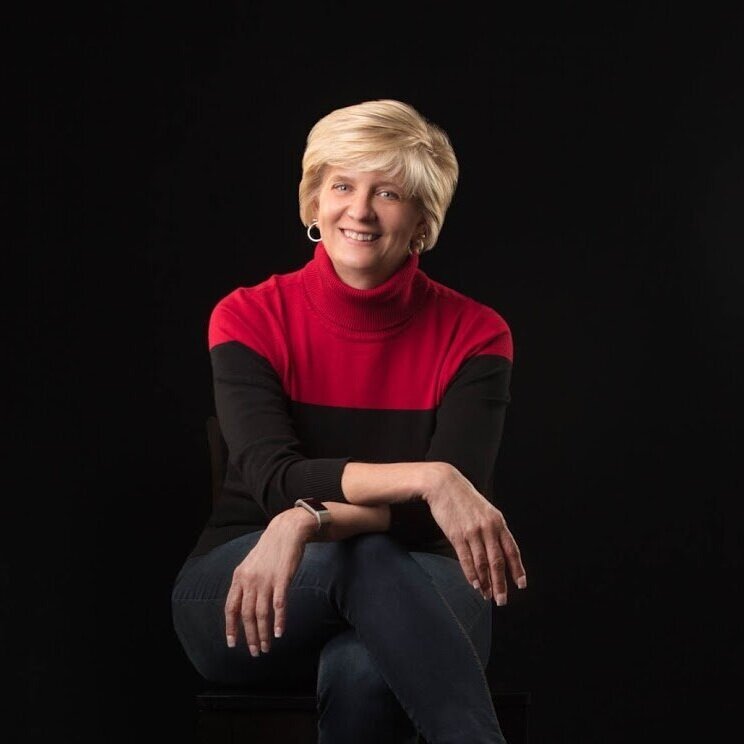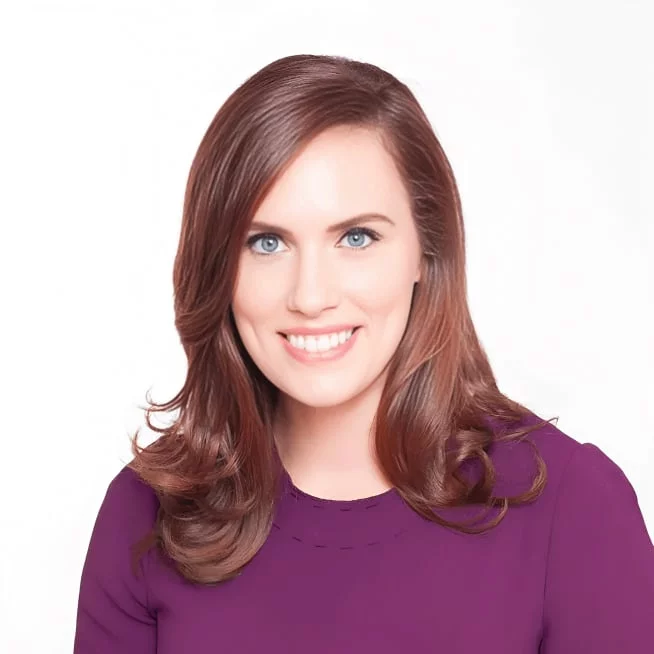I recently with one on one with Deborah Westphal. Deborah has spent three decades advising leaders in business and government on future-focused strategy and is the author of Convergence: Technology, Business, and the Human-centric Future.
Adam: Thanks again for taking the time to share your advice. First things first, though, I am sure readers would love to learn more about you. How did you get here? What experiences, failures, setbacks, or challenges have been most instrumental to your growth?
Deb: My entire upbringing centered around systems and structures. My parents built houses, and my dad had me work with him to fix things. I learned that building a great house is all about the right design and fitting pieces together. His influence is why I became an engineer. After college graduation, I went to work as a civilian for the US Air Force, helping to design future weapon systems. After several years there, I went to business school and came away having solidified my idea that the best way to design a business was like engineering a house or weapons system. It all happens because of the right structure and operational processes.
These collective learning experiences showed me that people are important in the process, but can also complicate things. Making sure to work with the right structure, systems, and operations helps to keep things together and moving forward. Those were the early days.
In the late nineties, Alvin and Heidi Toffler launched a strategy consulting firm called Toffler Associates. I was drawn to the firm’s passion, purpose, and cultural, and the fit was immediate. I joined the team to help leaders understand the disruptive changes happening around them and to give them the courage and vulnerability to set new courses of action that would equip them to adapt to a very different future.
About 10 years ago, I experienced a huge turning point. I was sitting with an executive of a large aerospace company while she theorized that the organization was having problems because of its people. I could see that they weren’t the issue, and, in fact, the problem was the onerous processes and layers of bureaucracy.
Throughout the 30 years of my career, I’ve supported hundreds of organizations and the leaders responsible for their success. I also have unlearned much of what I thought I knew about business success. I now believe that it’s not the best organizational design or operation management capability that makes a successful business, it is the people.
Adam: What are the takeaways from your new book? What do you believe are the most important elements to growing and scaling a business today and tomorrow?
Deb: The central takeaway from the book is that humanity is altering business. There are major forces at play that need to stay in balance for the future health of business. And right now, they are out of balance.
The reason behind building a business has been changing. Most of today’s companies are built to prioritize shareholder returns and this thinking has created an imbalance with the communities in which they operate.
People are demanding that businesses take a more active role in solving problems such as diversity and inclusion, inequality, and climate change. Influential financial institutions and advocacy groups are putting pressure on companies to take active steps to address ESG issues. With this new reality as the backdrop for business, the standard shareholder model doesn’t set up an organization for success in the future. To grow and scale a business, leaders must expand their priorities to include the spectrum of stakeholders. They must pivot their perspective to being a human-centric organization.
Adam: How can anyone “future proof” their business?
Deb:
1. Stay diligent in understanding the intricacies of the individuals and groups of people inside and outside your organization who have their own direction and momentum. The human system influences our business system, directly and indirectly. These complex relationships challenge the very reason our business exists.
2. Be mindful of those things that you cannot control. Become more aware of how the world is changing and try to understand the likely consequences of these changes. Go beyond defining what is changing. Look at why change might be happening and the disruptions it may produce.
3. Create a culture of future-focused thinking. Watch and assess your business landscape at all times. Create the practice of continually challenging what you believe is happening, why it is happening, and what could happen next. There are people in your organization who have a natural tendency toward future-focused thinking. Empower them, so they have the capacity to challenge and present new thoughts and ideas.
Adam: What are your best tips on how to lead during crisis, uncertainty, and change?
Deb: Countless case studies show that businesses, and the people in them, are more likely to succeed in the face of challenge and capture more opportunities for the future if they are bound and guided by a shared set of beliefs, decisions, and actions.
The recent events of COVID-19 have changed the way we think about business. They gave us an opportunity to stand back and assess what happens when the human system comes to a grinding halt. This unique time in history has offered us a rare opportunity to assess the mechanics of the operations inside and outside of our businesses. It has given us a chance to see what human-centric business means. Rising to the challenge of caring for one another in a time of need is fundamentally human-centric.
We have so many examples of shifting needs when things shut down. Let’s take restaurants as an example. Restaurants with a purpose to feed people well shifted their operations quickly to include take out, pick up, and deliver. But those with the purpose to create a destination or experience went out of business. We must fight against the tendency to snap back like a rubber band into old ways of doing things. A fundamental reorientation in thinking toward human-centric perspectives will make our businesses more resilient for the future.
Adam: What do you believe are the defining qualities of an effective leader?
Deb: Effective leaders cultivate a deep understanding of who they are as individuals. Knowing how and why they make decisions is critical. Recognizing their individual biases and belief systems is foundational. Nurturing the ability to determine when these parts of themselves get in the way of their capacity to lead from a place of transparency is required. Effective leaders lead with authenticity, vulnerability, and courage.
Adam: How can leaders and aspiring leaders take their leadership skills to the next level?
Deb: They can adopt new mindsets with new mental models about the purpose of business, move away from believing the sole purpose of the business is to maximize shareholder profit, and open the aperture of thinking about business as being human-centric.
To do these things, leaders must reexamine and update organizational designs that worked in the past, along with the mental models that guided those approaches. This endeavor will be hard. Our mental models are integral to who we are as professionals. We have imprinted thought processes and decision-making behaviors through time and experience. And these deeply set mental models prioritize the business system over the human system. Taking the step towards disruptive, creative thinking will level up leaders for the future.
Adam: What are your three best tips applicable to entrepreneurs, executives, and civic leaders?
Deb: First, strike a balance between meeting today’s goals and making sure you have a market in the future. You’ve got to have a market to operate in. That is true for today and for the future.
Second, recognize that if you are currently doing things that will have a negative impact on your future markets, you’re not going to have a sustainable business. As an example, water is important in almost every company manufacturing anything – electronics, pharmaceuticals, food, clothing you name it. It’s also second only to air as the thing we need most to sustain human life. If we destroy our water sources as a consequence of doing business, not only will our organizations die, but people will die. You may not get rewarded directly for having a water management strategy, but no short-term gain is going to be worth what you lose over the longer term.
Third, incorporate some sort of analysis of these complex relationships into your decision-making. The act will help you to determine impacts, consequences, and opportunities. There must be some rebalancing between decisions for today and for tomorrow.
Adam: What is your best advice on building, leading, and managing teams?
Deb: Stand in the place of human concerns and needs, meet people where they are, and then make balanced decisions for them and for your business.
Adam: What is the single best piece of advice you have ever received?
Deb: As a leader you must actively practice self-awareness. Recognize your individual bias and belief system. Know how you make decisions and why you make them. Be willing to say you don’t know and you were wrong.









